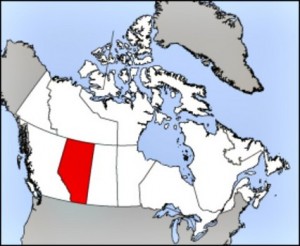Canadian health officials have confirmed bovine spongiform encephalopathy (BSE), or “mad cow disease” in a beef cow from Alberta. No part of the animal’s carcass entered the human food or animal feed systems.

The Government of Canada is committed to protecting human and animal health and takes the management of BSE very seriously. Immediately upon confirmation of this case, the CFIA launched an investigation and is working closely with provincial and industry partners.
BSE is a progressive, fatal neurological disease in cattle. Canada’s last confirmed BSE case was reported in 2011. This latest case was detected through the national BSE surveillance program, which continues to play an important role in Canada’s strategy to manage BSE.
As part of the investigation, the CFIA is seeking to confirm the age of the animal, its history and how it became infected. The investigation will focus in on the feed supplied to this animal during the first year of its life. The Agency will also trace out all animals of equivalent risk. Equivalent risk animals will be ordered destroyed and tested for BSE.
Canada remains a “controlled BSE risk” country, as recognized by the World Organisation for Animal Health (OIE). Accordingly, this case should not affect current exports of Canadian cattle or beef.
The announcement has prompted South Korea to suspend quarantine inspections of Canadian beef, according to a Yonhap news report.
“Although Canada has provided limited information, the (Korean) government has stopped the quarantine inspections to prevent any beef infected with the mad cow disease from entering the country,” an agriculture ministry official said.
Related: Toronto measles case count now at 7

